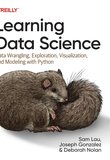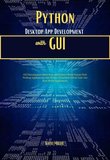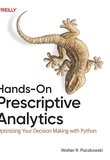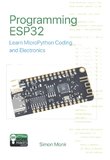-
.NET (.NET Core)
-
1C
-
APL
-
AWK
-
Agda
-
Agile/Scrum
-
Alef
-
Assembler
-
Basic
-
Beta Programming Language
-
Big Data/DataScience
-
C
-
C#
-
C++
-
CSS
-
Cobol
-
Crystal
-
D
-
Dart
-
DataBase (SQL)
-
Delphi
-
F#
-
Flutter
-
Fortran
-
GPT/AI/ИИ
-
GameDev
-
Git
-
Go (Golang)
-
HTML
-
Hacking and Security
-
Haskell
-
Java
-
JavaScript (JS)
-
Julia
-
Kotlin
-
Machine Learning (ML)
-
Natural language processing (NLP)
-
PHP
-
Pascal
-
Python
-
R
-
Ruby
-
Rust
-
Scratch
-
Swift
-
UML
-
UX/UI
-
Visual Basic
-
Wolfram
-
XML
-
АСУ
-
Проектирование/System Design
-
Сети/Network
-
Схемотехника/электронные схемы
-
.NET (.NET Core)
-
1C
-
APL
-
AWK
-
Agda
-
Agile/Scrum
-
Alef
-
Assembler
-
Basic
-
Beta Programming Language
-
Big Data/DataScience
-
C
-
C#
-
C++
-
CSS
-
Cobol
-
Crystal
-
D
-
Dart
-
DataBase (SQL)
-
Delphi
-
F#
-
Flutter
-
Fortran
-
GPT/AI/ИИ
-
GameDev
-
Git
-
Go (Golang)
-
HTML
-
Hacking and Security
-
Haskell
-
Java
-
JavaScript (JS)
-
Julia
-
Kotlin
-
Machine Learning (ML)
-
Natural language processing (NLP)
-
PHP
-
Pascal
-
Python
-
R
-
Ruby
-
Rust
-
Scratch
-
Swift
-
UML
-
UX/UI
-
Visual Basic
-
Wolfram
-
XML
-
АСУ
-
Проектирование/System Design
-
Сети/Network
-
Схемотехника/электронные схемы
Меню
Deep Learning and XAI Techniques for Anomaly Detection: Integrate the theory and practice of deep anomaly explainability

Автор: Simon Cher
Дата выхода: 2023
Издательство: Packt Publishing Limited
Количество страниц: 218
Размер файла: 11,6 МБ
Тип файла: EPUB
Добавил: codelibs
Preface
Part 1 – Introduction to Explainable Deep Learning Anomaly Detection
Chapter 1: Understanding Deep Learning Anomaly Detection
Chapter 2: Understanding Explainable AI
Part 2 – Building an Explainable Deep Learning Anomaly Detector
Chapter 3: Natural Language Processing Anomaly Explainability
Chapter 4: Time Series Anomaly Explainability
Chapter 5: Computer Vision Anomaly Explainability
Part 3 – Evaluating an Explainable Deep Learning Anomaly Detector
Chapter 6: Differentiating Intrinsic and Post Hoc Explainability
Chapter 7: Backpropagation versus Perturbation Explainability
Chapter 8: Model-Agnostic versus Model-Specific Explainability
Chapter 9: Explainability Evaluation Schemes
Index
Other Books You May Enjoy
Despite promising advances, the opaque nature of deep learning models makes it difficult to interpret them, which is a drawback in terms of their practical deployment and regulatory compliance.
Deep Learning and XAI Techniques for Anomaly Detection shows you state-of-the-art methods that'll help you to understand and address these challenges. By leveraging the Explainable AI (XAI) and deep learning techniques described in this book, you'll discover how to successfully extract business-critical insights while ensuring fair and ethical analysis.
This practical guide will provide you with tools and best practices to achieve transparency and interpretability with deep learning models, ultimately establishing trust in your anomaly detection applications. Throughout the chapters, you'll get equipped with XAI and anomaly detection knowledge that'll enable you to embark on a series of real-world projects. Whether you are building computer vision, natural language processing, or time series models, you'll learn how to quantify and assess their explainability.
By the end of this deep learning book, you'll be able to build a variety of deep learning XAI models and perform validation to assess their explainability.
What You Will Learn:
Explore deep learning frameworks for anomaly detection
Mitigate bias to ensure unbiased and ethical analysis
Increase your privacy and regulatory compliance awareness
Build deep learning anomaly detectors in several domains
Compare intrinsic and post hoc explainability methods
Examine backpropagation and perturbation methods
Conduct model-agnostic and model-specific explainability techniques
Evaluate the explainability of your deep learning models
Who this book is for:
This book is for anyone who aspires to explore explainable deep learning anomaly detection, tenured data scientists or ML practitioners looking for Explainable AI (XAI) best practices, or business leaders looking to make decisions on trade-off between performance and interpretability of anomaly detection applications. A basic understanding of deep learning and anomaly detection-related topics using Python is recommended to get the most out of this book.









